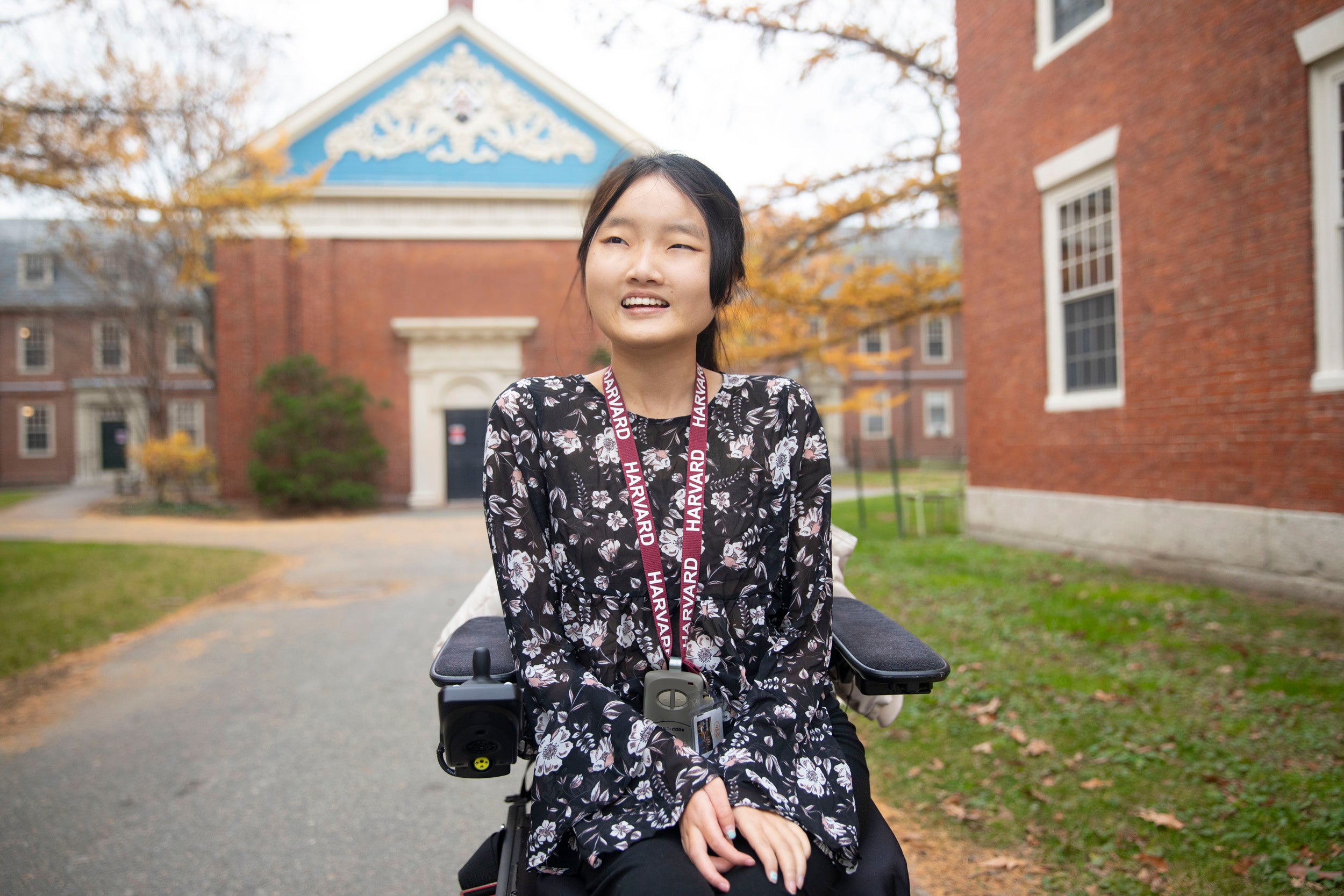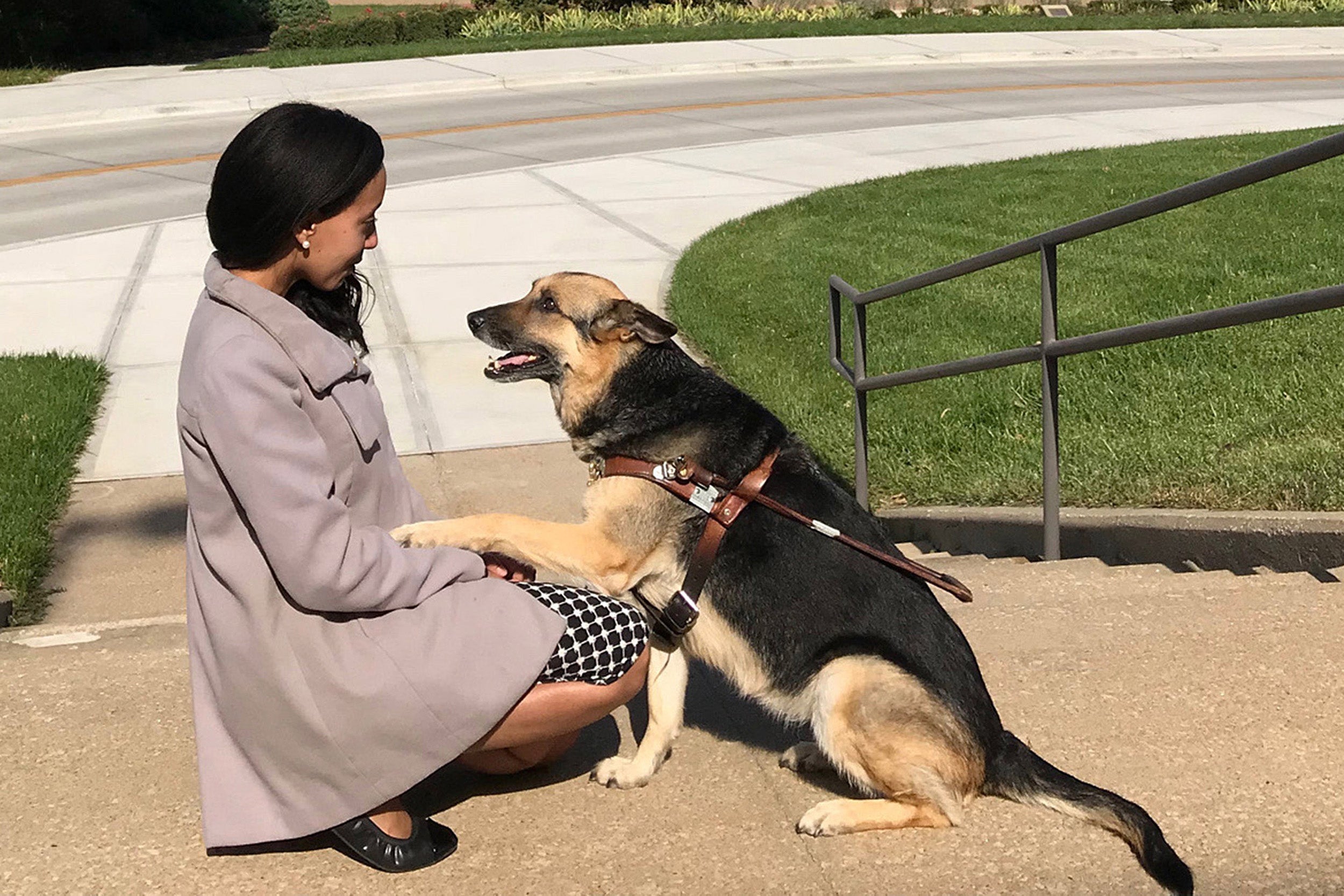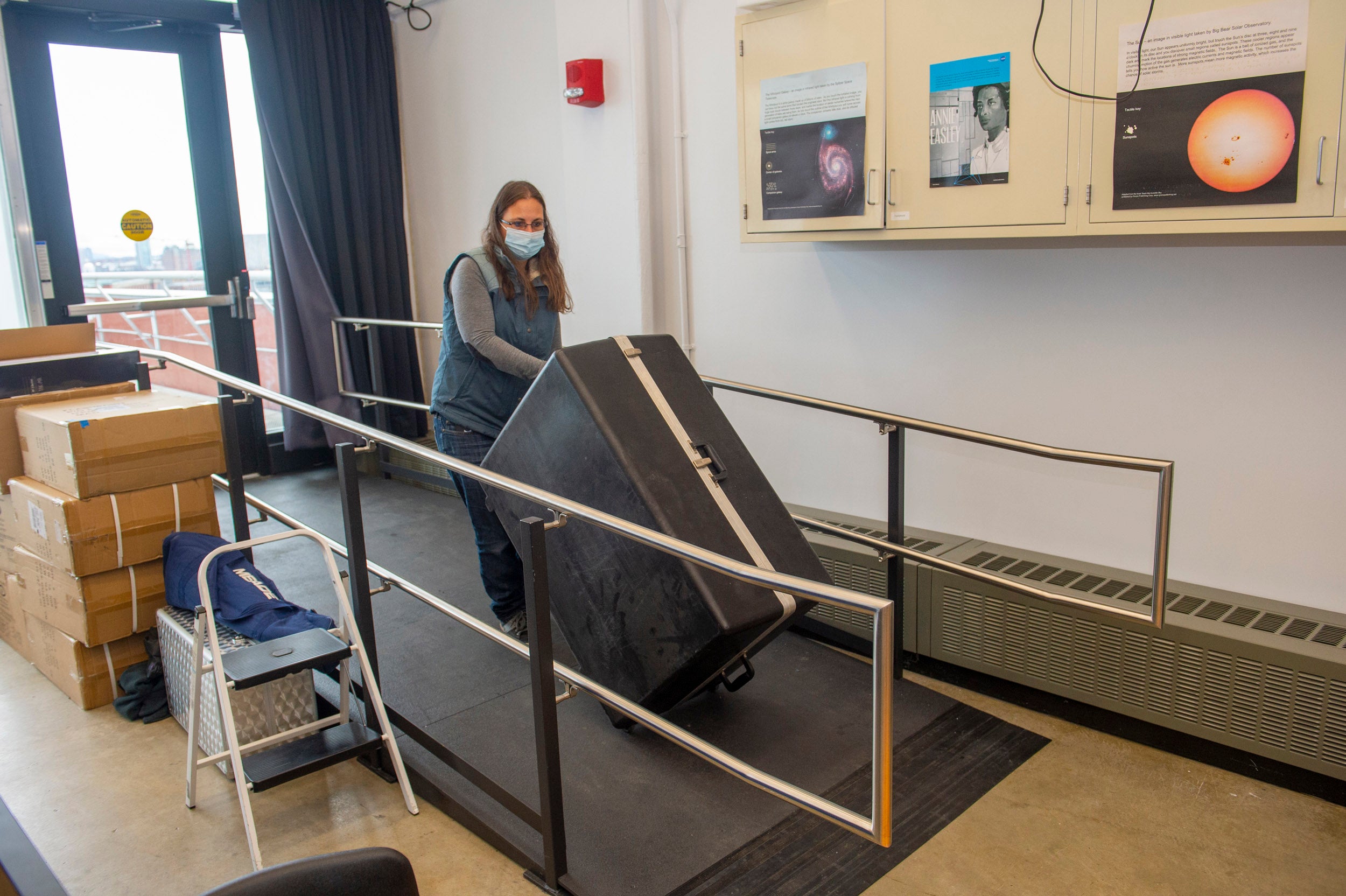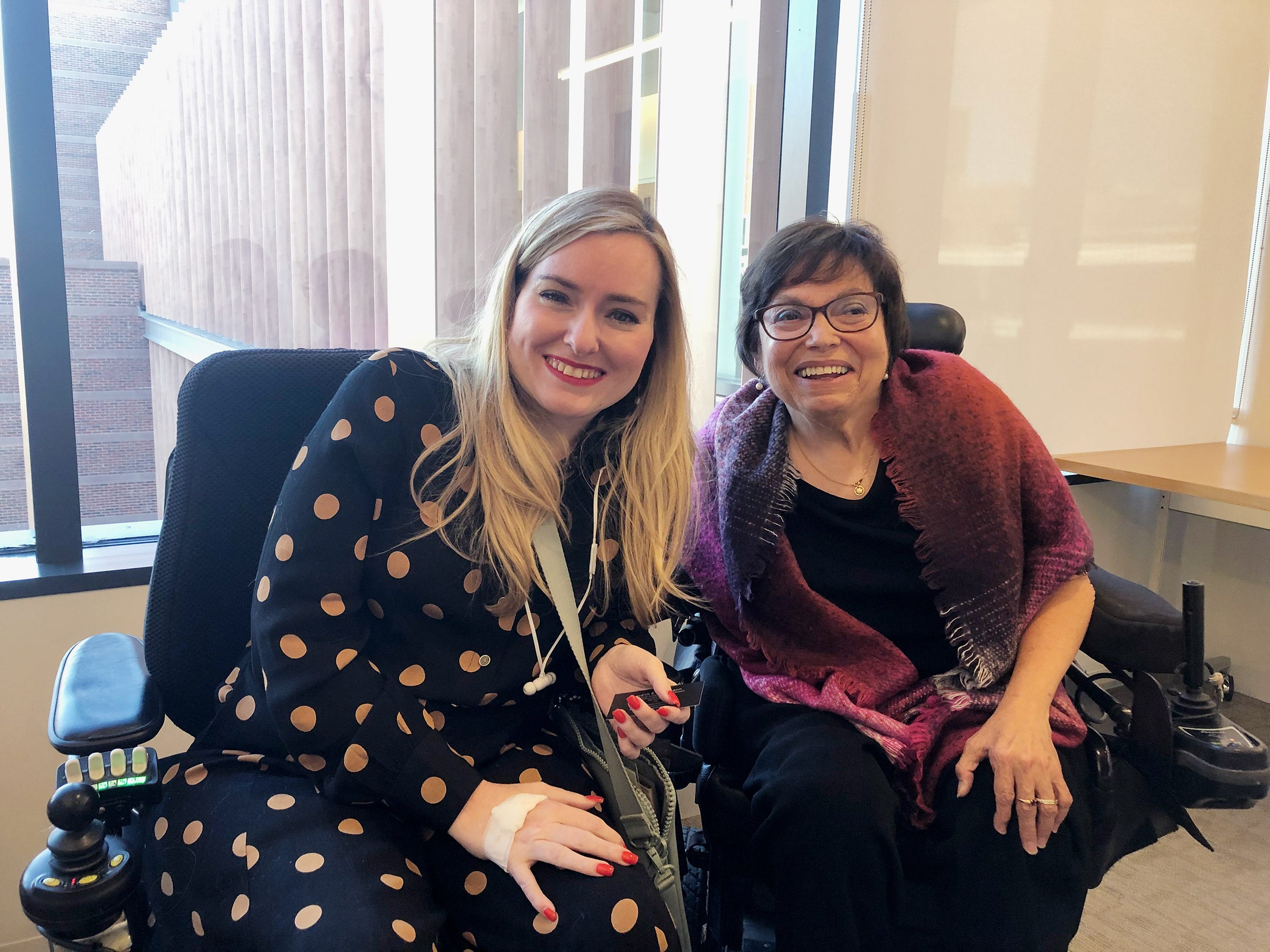
Melissa Shang is a first-year student, disability activist, and children’s book author. She brought her activism to campus to promote greater accessibility measures.
Kris Snibbe/Harvard Staff Photographer
Raising awareness about disability amid pandemic
First-year Melissa Shang helped form group on campus, pushes for education, representation, accessibility
The pandemic has turned a harsh spotlight on various economic, social, and racial inequities, inspiring calls by political and civic leaders for reforms. But first-year student Melissa Shang fears that the challenges of one long-ignored group have yet to be brought fully into focus: those with disabilities.
“My disability weakens my lungs, which puts me at higher risk of having a severe case of COVID,” said Shang, who has Charcot-Marie-Tooth disease, a degenerative nerve disorder. “When the pandemic first started, I heard so many people say things like, ‘Oh, we’ll be fine. This only affects old and at-risk people.’ As someone who is at-risk, it felt as if I was being excluded. I felt like my classmates, my peers, my teachers didn’t think that my life mattered as much as theirs did, which was pretty difficult.”
The 18-year-old disability activist has made it her mission to educate others about issues facing disabled people and improve both their representation in media and their everyday lives. With only one semester at Harvard under her belt, Shang has already used her activism skills to rally students. The Thayer Hall resident, who is considering concentrating in sociology, had a major role in establishing the Harvard Undergraduate Disability Justice Club last fall.
“I’m lucky enough to have found our community at Harvard,” Shang said. “My friends and I decided to start this group to create a social community for disabled people who are fighting and advocating for our needs.”
Shang, who uses a wheelchair and has multiple personal care assistants to help her get dressed and ready throughout the day, has found that Harvard accommodates her needs. She believes, however, that the University could attend more closely to some challenges, particularly improving accessibility, which is a top priority for her group.
She also noted that there are few courses dedicated to disabilities studies, a situation her club hopes to improve.
“The majority of the student body at Harvard, and really the general public, is very unaware of the struggles and challenges disabled people face due to systemic and societal ableism and inaccessibility, so it is important to raise this awareness and advocate for change,” said Shang’s co-president, Sarika Chawla, a junior concentrating in computer science.
“When the pandemic first started, I heard so many people say things like, ‘Oh, we’ll be fine. This only affects old and at-risk people.’ As someone who is at-risk, it felt as if I was being excluded.”
Melissa Shang
The pandemic has exacerbated the need to educate people about the history of disability in the U.S., Shang said, and the difficulties faced by those with a mental or physical condition that makes it difficult to do certain activities. But her advocacy for the disabled has been a lifelong pursuit.
“Growing up as someone who’s disabled, I so often felt alone in my day-to-day life,” she said. Unable to play with classmates on the playground, she often immersed herself in fairy tales, but lamented that she never could find characters that represented people like her.
That frustration prompted then-10-year-old Shang to take action. She and her sister Eva petitioned American Girl, a brand of dolls and books, to release a doll with a disability. The sisters obtained more than 140,000 signatures in a Change.org petition.
American Girl acknowledged Shang’s efforts but, ultimately, turned her down. The rejection didn’t stop Shang, who went on to write and self-publish her own children’s book, “Mia Lee Is Wheeling Through Middle School,” three years later. The story centers around a girl with the same condition as Shang’s, though she noted that the book is not focused on her character’s disability, but rather her experiences as a middle schooler.
Shang believes the media is also to blame for imbalanced representation of the disabled community. Disabled people are typically treated as side characters meant to inspire the main character, Shang said, describing the depiction of disabilities as a fate worse than death.
“Even though I have a disability, I’m still a person,” she said. Like her friends, she likes to read YA novels, study at Lamont Library, and take late-night trips to Mike’s Pastry.
Oddly enough, while the pandemic created special problems and anxieties for disabled students, there was one wholly unanticipated benefit. The adoption of tools such as Zoom amid the switch to remote learning allowed Shang and some other disabled students to participate in more activities with classmates and link up more regularly with disabled peers on campus, offering perhaps a taste of what greater inclusion and accessibility could bring.
Chawla said Shang is fiercely committed to bringing about such change and making sure “the world is made a better, more accessible place for disabled people.”







